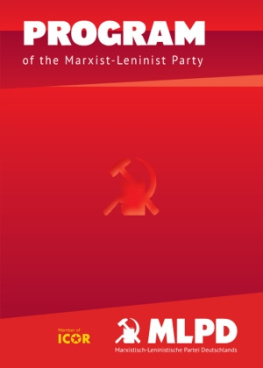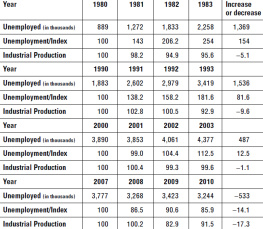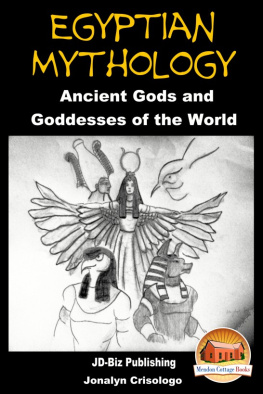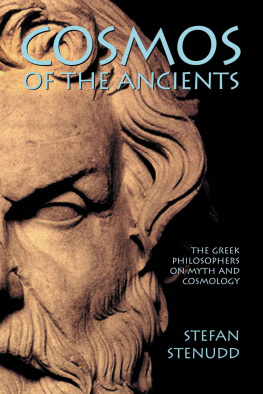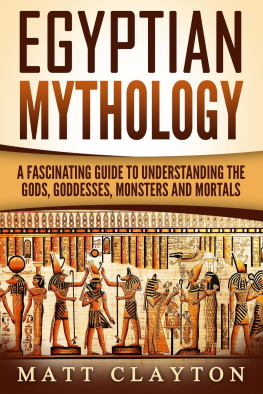
Twilight of the Gods
Gtterdmmerung
over the New World Order
June 2003
Editorial Team Revolutionrer Weg
headed by Stefan Engel
Buerer Str. 39, D-45899 Gelsenkirchen, Germany
VNW Verlag Neuer Weg GmbH
Alte Bottroper Strasse 42, D-45356 Essen, Germany
All rights reserved.
Twilight of the Gods
Gtterdmmerung
over the New World Order
First published in German in March 2003 in the series
Revolutionrer Weg, Nos. 2931, 2003
Alte Bottroper Strasse 42, D-45356 Essen, Germany
E-mail:
www.neuerweg.de
ISBN 3-88021-342-9
eISBN 978-3-88021-426-2
Stefan Engel
Twilight of the Gods
Gtterdmmerung
over the
New World Order
The Reorganization of
International Production
Verlag Neuer Weg
Preface
For the title of the book, author Stefan Engel employs an allegory from German mythology: in the gtterdmmerung, the twilight of the gods, the end of the world engulfs the worn-out gods of an antiquated age, and out of the world conflagration grows an admirable new world of peace and full, joyous life. The parallel with the decline of the present ruling stratum of world society and the preparation of a new future well worth living is intended! The book wrests this vision from the realm of mythology and places it on a reliable scientific foundation.
United States President George Bush arrogantly heralded a New World Order in 1991. But this pompous proclamation merely disguised the open claim to leadership over the entire world by the sole remaining superpower, the USA.
The author comprehensively analyzes how this new world order has become a world disorder which no one can bring under control anymore. With the reorganization of international production as the economic essence of the social changes, a multitude of devastating crises, wars and collapses have resulted. The revolutionary productive forces drive to unfold worldwide and are stifled by the corset of the outdated social structures of imperialism. Because the capitalist system cannot solve these problems, its decline hastens. But at the same time all material prerequisites ripen within it for a truly new world order: the revolutionary overcoming of the imperialist world system in an international socialist revolution, and the emergence of the united socialist states of the world.
This captivating book is marked not only by a refreshing culture of debate but also a stringent scientific method with which an impressive volume of facts and materials is investigated and interpreted. It conveys a perspective to all those for whom the gtterdmmerung of ruling world finance capital does not signify the end of history but the starting point of a new epoch of the social development of humanity without hunger, exploitation and war.
| Publishing House Verlag Neuer Weg | Essen |
| March 15, 2003 |
Introduction
Since the dissolution of the Soviet Union and its empire we have been witnessing a breath-taking process of the economic and political reorganization of the world. Under the misleading heading globalization, a flood of publications on the subject by bourgeois and petty-bourgeois economists has appeared. But hardly a one can stand up to scientific scrutiny and, above all, satisfy the demand to reveal the social causes of this development from all sides.
In the international Marxist-Leninist and working-class movement, too, as yet only a few important analyses of individual aspects of this process exist. An accurate and all-sided general assessment is still lacking. This can lead to misinterpretation of the new developments in society, with serious consequences, and to wrong conclusions for the struggle against imperialism and for socialism.
This book underscores the general validity of the analyses of imperialism by Lenin and of state-monopoly capitalism in Germany by Willi Dickhut. At the same time it directs fullest attention to the new manifestations, the essential changes, in the imperialist world system. They are summed up as the reorganization of international capitalist production.
The political starting point of this reorganization was the end of the era of the social-imperialist Soviet Union, sealed by the abortive putsch attempt of Soviet military men in August 1991. The continued existence of the Soviet Union and the Council for Mutual Economic Assistance (CMEA) as an economic area relatively isolated from the rest of the world could no longer be maintained. The scientific and technological revolution caused by microelectronics and full automation and the internationalization of capitalist production had largely undermined the economic and political basis of superpower Soviet Union. The full integration of the Soviet spheres of influence into a unified world market and the relative assimilation of their relations of production to the far more productive relations of production in the West had become an immediate economic necessity.
The ensuing upheavals in Russia and the other countries of the former Soviet Union and the former CMEA did not, of course, have a general system-changing character. The Soviet Union already had lost its socialist character since the Twentieth Party Congress of the CPSU in February 1956. With the seizure of power by a new bourgeoisie from the central bureaucracy of the party, economy and state, the Soviet Union degenerated into a bureaucratic state-monopoly capitalism of a new type. The only thing it then had in common with socialism was the name.
The propaganda of the end of socialism, yes, even the end of history, was merely the triumphant cheering of the victorious Western powers which had defeated their social-imperialist rival in an unrelenting battle of competition. It mainly served to manipulate the oppressed and exploited all over the world who, in growing discontent, increasingly are looking for an alternative to capitalist society.
It was not socialism but the modern revisionism of Khrushchov, Brezhnev and Gorbachov that was defeated when the Soviet Union dissolved. This modern revisionism was the philosophical underpinning of the rule of the new bourgeoisie in the Soviet Union and of its aspirations to excel its arch-rival, the USA, and itself gain ascendancy as the worlds leading imperialist superpower.
The bankruptcy of the social-imperialist Soviet superpower was a manifestation of the rottenness and erosion of the imperialist world system in general and of Soviet-style bureaucratic state-monopoly capitalism in particular. This failure engendered a deep crisis of modern revisionism and its aligned parties. It opened the way for the international Marxist-Leninist and working-class movement to fundamentally assess this negative development and overcome it. In a protracted ideological-political process, the causes and effects of and the conditions for the revisionist degeneration and the restoration of capitalism in all formerly socialist countries, without exception, must be completely clarified. This must be accompanied by reconstituting the ranks of the Marxist-Leninists all over the world on the basis of creative conclusions for the future of the revolutionary liberation struggle and for a new upsurge of the international struggle for socialism/communism.
The reorganization of international production is a temporary culmination point in the internationalization of the capitalist mode of production. It introduced a new phase in the development of the imperialist world system.
Because several major obstacles to the free unfolding of the world market were eliminated, a tremendous leap in the development of the productive forces occurred at the end of the twentieth century. No country in the world could and can remain unaffected by it. An unprecedented process of cross-border concentration and centralization in industry, agriculture, trade and banking was set in motion and profoundly changed the economic and political landscape.
Next page
